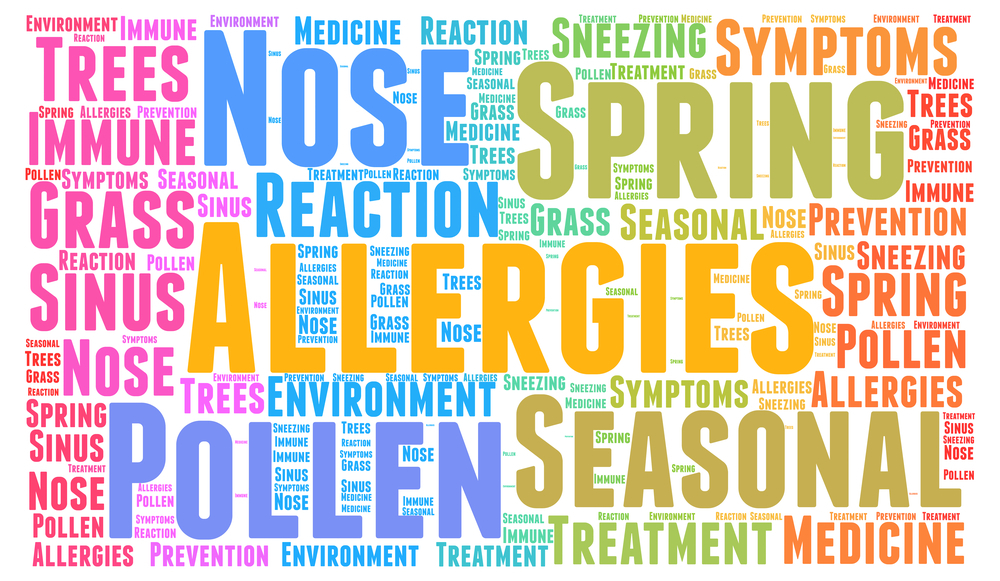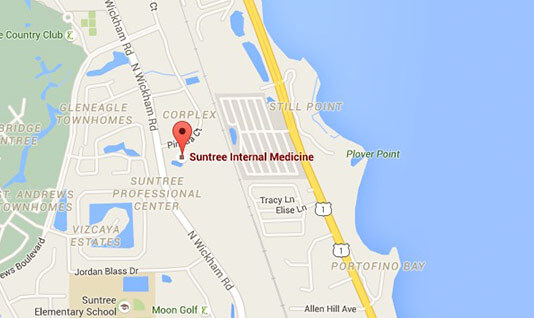Seasonal Allergies: Signs, Symptoms & Treatments
Posted on: June 21, 2018

Cool weather seems to be fleeing farther away with each passing day full of sunshine and warm breezes. It is well and truly spring, May has arrived sand has blessed us all with healthy and beautiful blooms. When it comes to the seasons, spring and summer are often named as the most enjoyable times of the year. It’s easy to understand why, too, especially when we’re still chasing away the last of the winter blues. With all of that said, warmer weather doesn’t only herald good things. For many, it means the arrival of seasonal allergies that add a new layer of difficulty to their lives.
Let’s take a look at some common allergy-inducing plants, allergy symptoms, and how you can treat them in a healthy and effective manner!
Common Seasonal Allergy Triggers
One of the biggest allergy triggers is the pollen count. Tree pollination is the first to cause issues and begins around February to March, however it really kicks into high gear a little bit later in the year. Late March, for example, to late April tend to be when individuals suffering from allergies related to tree pollination really begin to notice a big change in their symptoms. Grass (and other plant) pollination begins a little bit later in spring and can intensify symptoms in individuals sensitive to this particular allergy trigger.
Allergy Symptoms
There are a number of symptoms to be aware of when it comes to seasonal allergies. Some people find it difficult to differentiate between seasonal allergy symptoms and symptoms of the common cold. These individuals worry that they’re really letting a cold run rampant and will most often end up fairly frustrated and stressed as they attempt to determine whether they have some cold or seasonal allergies to treat. Here are some common symptoms that are indicative of seasonal, airborne allergies:
- Itchy Eyes
- Stuffy Nose
- Runny Nose
- Sneezing
- Watery Eyes
- Ear Congestion
One thing to keep in mind is that while some of these symptoms are very similar to the symptoms you might experience if you were to fall ill with a cold, there are certain combinations of symptoms that are not common to colds and vice versa. A cough, for example, is a pretty common symptom of the common cold. While it is possible for a cough to be indicative of seasonal allergies, it is not necessarily common. The same goes of headaches, wheezing, and a shortness of breath. Those are symptoms that are more indicative of the common cold just as Itchy eyes are more indicative of seasonal allergies.
Allergy Symptoms
Now that we’ve talked about the causes of seasonal allergies as well as their symptoms and which ones can help you determine whether you’re struggling with a cold or allergies, let’s talk about treatment options. The first thing that you might consider doing is reaching out to the experienced internal medicine professionals at our office to take a breathing test. These can be very helpful when it comes to officially determining the cause of the symptoms you are exhibiting. Once you know for sure that you are struggling with seasonal allergies and not something else, we can move on to effective treatment options.
One of the most effective treatments for allergy symptoms is avoiding or reducing your exposure to their triggers. If you are sensitive to mold and pollen counts, for example, then it’s a good idea to keep your windows and doors shut to keep counts in your home itself lower. This is also the case when you’re driving. You might also try taking frequent showers and washing clothing that has been outside as quickly as possible. Finally, if you have severe allergies, wearing a filter mask can help limit exposure to pollen when you are outside.
When it comes to medication, antihistamines, decongestants, and nasal steroids are some of the most common allergy treatments. To determine what kind of specific medication would work best for you, contact Suntree Internal Medicine and schedule an appoint with one of our doctors today!




